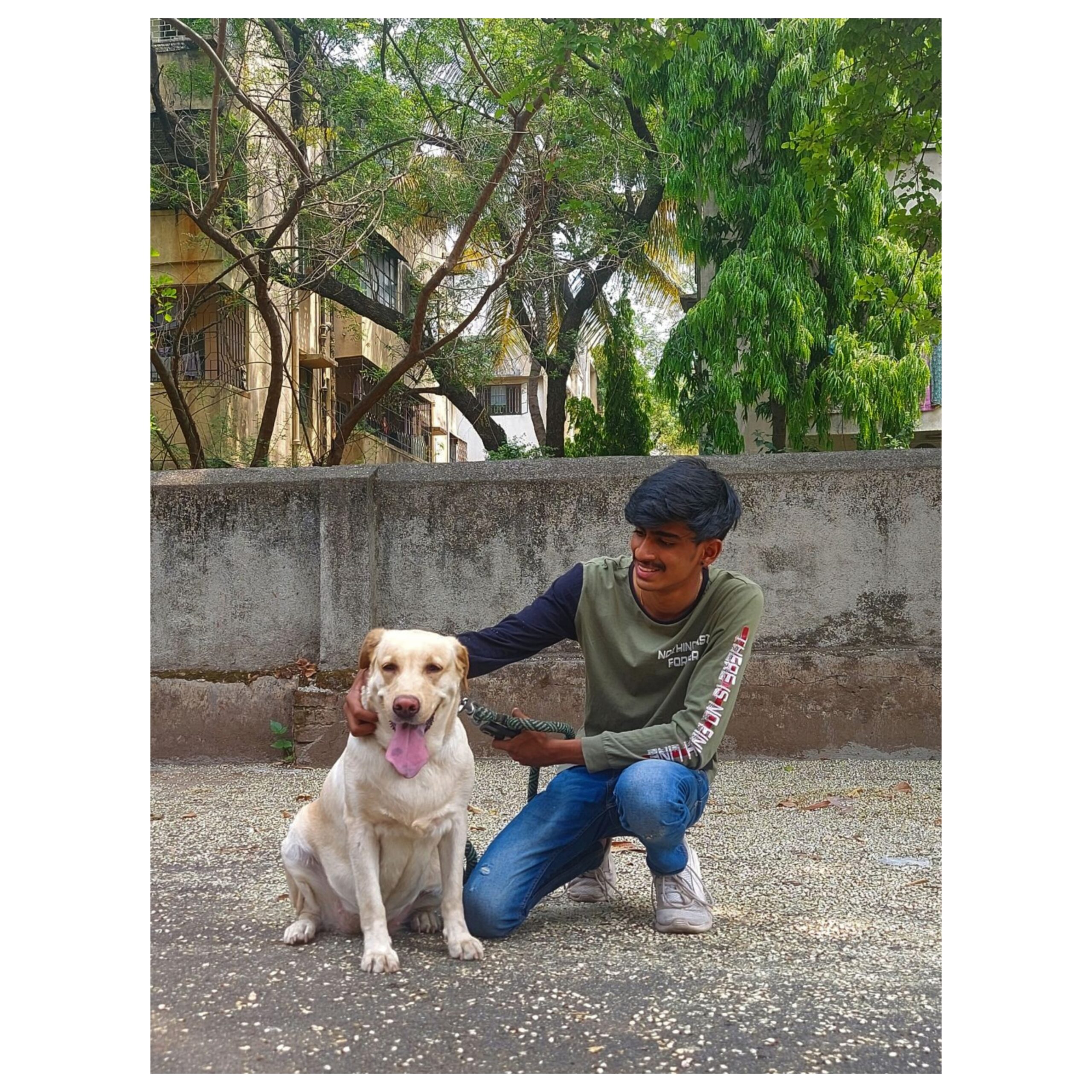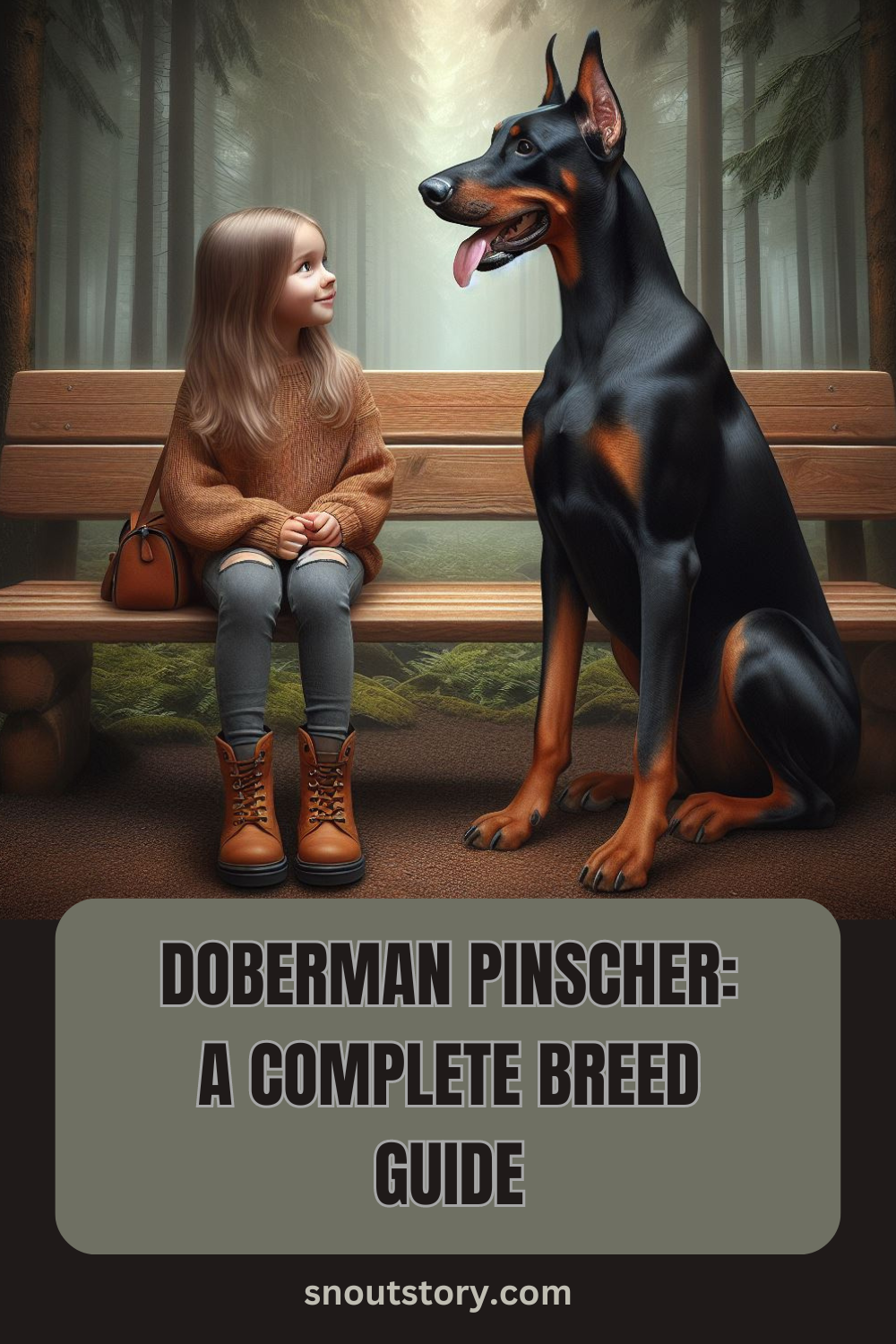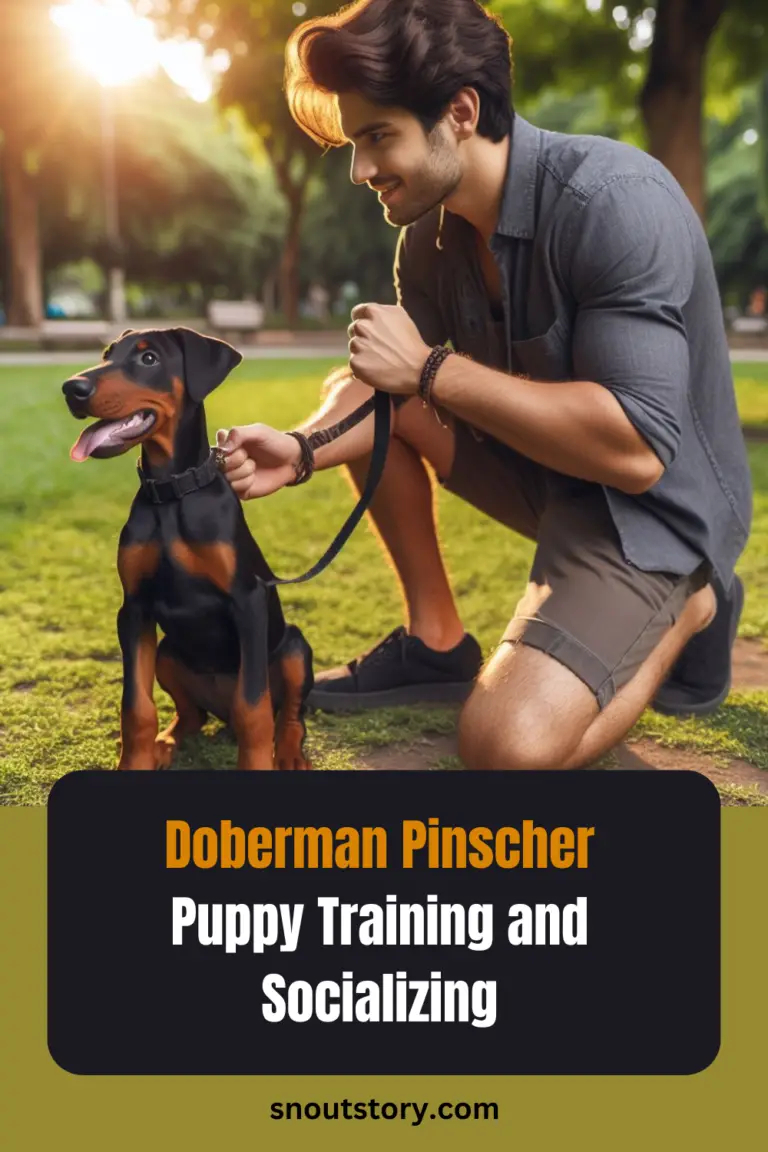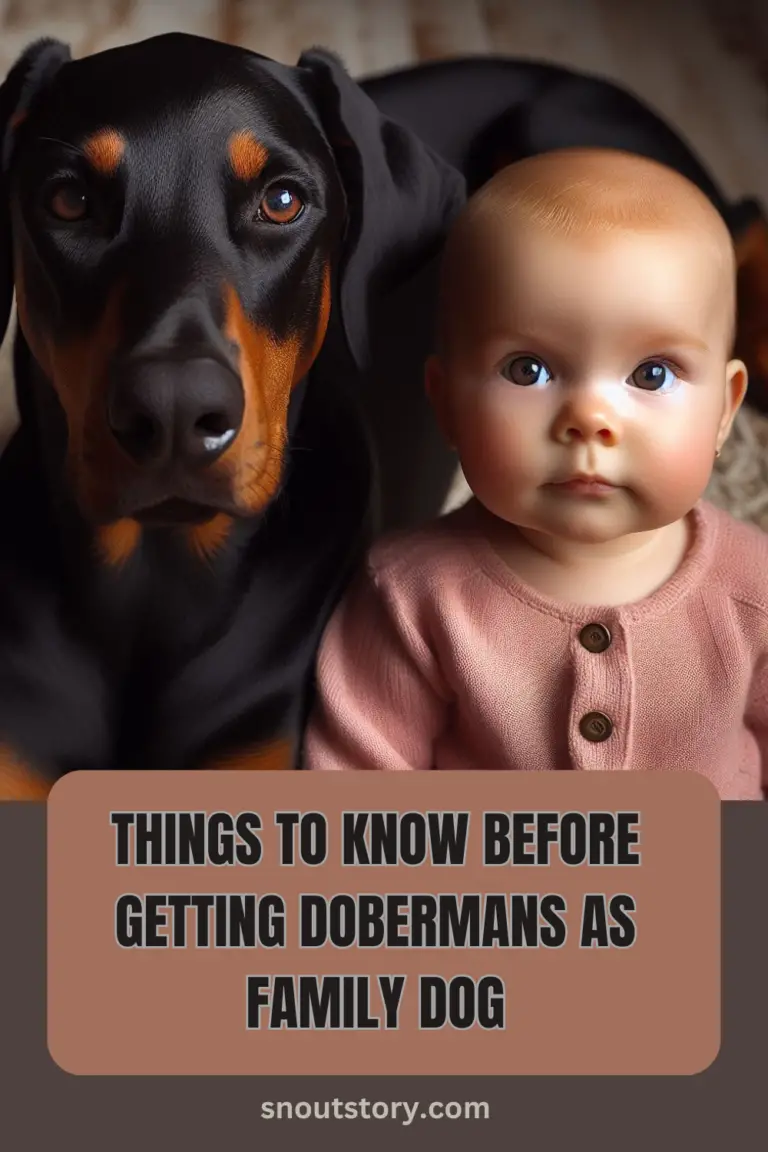The origins and history of the Doberman Pinscher trace back to the 19th century in Germany, where Karl Friedrich Louis Dobermann, a tax collector and dog breeder, developed the breed. Dobermann aimed to create a versatile and protective dog to accompany him during his rounds.
He selectively bred various dog breeds, including the Rottweiler, German Pinscher, Greyhound, and Weimaraner, to produce the Doberman Pinscher we know today. The breed’s distinct combination of strength, intelligence, loyalty, and agility made them well-suited for roles such as guard dogs, military service, police work, and companionship. Over time, Dobermans gained popularity worldwide for their versatility and remarkable abilities, solidifying their place as one of the most iconic and beloved dog breeds globally.
Doberman Pinscher: Physical Characteristics and Breed Standards

In exploring the physical characteristics and breed standards of Doberman Pinschers, one cannot help but be captivated by their striking appearance and the meticulous guidelines that define their breed. These dogs embody a unique blend of elegance and strength, characterized by their sleek, muscular build and commanding presence. With their distinct coat colors ranging from bold blacks to rich reds, each Doberman possesses a distinctive charm that captivates onlookers.
Their alert expression and iconic cropped ears, where permitted, further enhance their regal demeanor. According to breed standards, male Dobermans typically stand between 26 to 28 inches tall at the shoulder and weigh 75 to 100 pounds, while females are slightly smaller, standing 24 to 26 inches and weighing 60 to 90 pounds. These standards underscore the breed’s exceptional athleticism, grace, and adaptability, showcasing their role as devoted companions and reliable protectors.
Doberman Temperament and Personality Traits
Understanding the temperament and personality characteristics of Doberman Pinschers reveals a complex and fascinating side to these extraordinary dogs. Renowned for their loyalty, intelligence, and affectionate nature, Dobermans often form strong bonds with their human companions, earning them the reputation of being fiercely loyal protectors.
While their imposing stature might suggest otherwise, Dobermans are inherently gentle and loving, displaying a remarkable sensitivity to the emotions of their owners. With proper socialization and training, they exhibit remarkable adaptability, thriving in various environments and roles, from devoted family pets to vigilant guard dogs. Despite their protective instincts, Dobermans possess a playful and energetic demeanor, often engaging in interactive activities with enthusiasm and vigor.
Their inquisitive nature and keen intelligence make them quick learners, capable of mastering a range of commands and tasks. Ultimately, the temperament of a Doberman reflects the nurturing environment and guidance provided by their owners, highlighting the significance of positive reinforcement and consistent training in shaping their behavior.
Doberman Training and Obedience
When it comes to training and obedience with Doberman Pinschers, consistency and positive reinforcement are key. These intelligent and eager-to-please dogs thrive on mental stimulation and clear direction from their owners. From an early age, establishing a structured training routine helps to instill good behavior and prevent any potential issues from arising as they mature.
Utilizing reward-based methods such as treats, praise, and playtime motivates Dobermans to learn and respond positively to commands. Incorporating obedience training into daily activities not only strengthens the bond between owner and dog but also ensures that they develop into well-mannered companions.
It’s essential to approach training with patience and understanding, recognizing that each Doberman has its own unique personality and learning pace. By fostering a nurturing and supportive environment, owners can guide their Dobermans towards becoming obedient, well-adjusted, and happy members of the family.
Doberman Exercise and Activity Requirements

Ensuring adequate exercise and activity for Doberman Pinschers is crucial for their physical health and mental well-being. These energetic and athletic dogs require regular opportunities to burn off excess energy and engage in stimulating activities to prevent boredom and destructive behaviors.
Daily walks, runs, or play sessions in a fenced yard are essential to meet their exercise needs. Engaging in interactive games such as fetch or agility training not only provides physical exercise but also helps to stimulate their intelligent minds.
Additionally, incorporating mental challenges such as puzzle toys or obedience training sessions keeps them mentally sharp and satisfied. Owners should aim for at least an hour of exercise each day, but individual needs may vary based on age, health, and temperament. By providing consistent and varied outlets for physical and mental stimulation, owners can ensure that their Dobermans lead happy, healthy, and fulfilling lives.
Doberman Grooming and Coat Care
To maintain the health and appearance of your pet’s coat, regular grooming and care are essential. Brushing your pet’s coat not only helps to remove loose hair and prevent mats but also promotes blood circulation and distributes natural oils, keeping the coat shiny and healthy.
Additionally, bathing your pet with a gentle pet shampoo when necessary helps to remove dirt and odor while keeping the skin clean and moisturized. Pay attention to specific grooming needs based on your pet’s breed and coat type, such as trimming nails, cleaning ears, and brushing teeth. By incorporating grooming into your pet care routine, you not only ensure their physical well-being but also strengthen the bond between you and your furry friend.
Health Considerations and Common Issues in Dobermans
Ensuring the health and well-being of your pet is paramount, and being aware of common health issues can help you provide proper care and early intervention when needed. Regular veterinary check-ups are essential for monitoring your pet’s overall health and addressing any concerns promptly.
Some common health issues in pets include dental problems, obesity, skin allergies, and joint issues. By maintaining a balanced diet, providing regular exercise, and keeping up with vaccinations and preventive care, you can help prevent many health issues and ensure a happy and healthy life for your beloved companion. Additionally, being attentive to any changes in your pet’s behavior or appearance and seeking veterinary advice when necessary can help address health issues early, leading to better outcomes.
Feeding Guidelines and Nutrition Recommendations for Your Doberman
Feeding your pet a balanced diet is crucial for their overall health and well-being. When it comes to feeding guidelines and nutrition recommendations, it’s essential to consider factors such as age, weight, activity level, and any specific dietary needs or restrictions your pet may have.
Providing high-quality commercial pet food that is formulated to meet their nutritional requirements is a good starting point. However, incorporating fresh fruits, vegetables, and occasional lean meats can add variety and nutritional value to their diet. Always ensure access to fresh, clean water, and avoid feeding your pet table scraps or foods that are toxic to them.
The amount of food a Doberman should be fed can vary depending on factors such as age, weight, activity level, and the specific type of food being fed (dry kibble, wet food, raw diet, etc.). As a general guideline, adult Dobermans typically require around 2 to 3 cups of high-quality dry dog food per day, divided into two meals. Puppies may need more frequent meals and smaller portions throughout the day.
8 Super-Foods to Ensure Your Doberman Lives a Long-Life (Click Here to Read)
Monitoring their weight and adjusting portion sizes as needed can help prevent obesity and maintain a healthy weight. Additionally, consulting with your veterinarian for personalized feeding recommendations based on your pet’s individual needs can ensure they receive the best possible nutrition for a long and healthy life.
Socialization and Interaction with Other Pets
When it comes to socialization and interaction with other pets, it’s crucial to introduce your Doberman to different animals early on in life to help them develop positive behaviors and relationships. Start with controlled, supervised meetings with other dogs or pets to ensure safety and minimize any potential conflicts.
Allow your Doberman to gradually become accustomed to various social situations, including dog parks, obedience classes, or playdates with friends’ pets. Positive reinforcement techniques, such as rewards and praise, can encourage good behavior and build confidence during interactions. Always monitor your Doberman’s body language and reactions to ensure they are comfortable and happy in social settings. With patience and consistency, you can help your Doberman become a well-adjusted and sociable companion.
Choosing the Right Doberman Puppy: Tips for Prospective Owners
Choosing the right Doberman puppy is an exciting yet important decision for prospective owners. It’s essential to consider factors such as your lifestyle, living situation, and the temperament of the puppy. Take the time to research reputable breeders who prioritize health and temperament in their breeding programs. When meeting potential puppies, observe their behavior and interaction with their littermates and humans. Look for a puppy that displays confidence, curiosity, and a friendly demeanor.
Additionally, consider factors such as the puppy’s health history, vaccinations, and any genetic testing conducted by the breeder. Remember, selecting the right Doberman puppy is the first step in building a lifelong bond and companionship.
Recommended
8 Super-Foods to Ensure Your Doberman Lives a Long-Life
Do Doberman’s Make Good Guard Dogs – Are They Aggressive?
Do Dobermans Make Good Family Dogs? 8 Surprising Facts
Doberman Pinscher Puppy Training and Socializing (A Complete Guide)
Doberman Pinscher Size and Weight – Everything a New Owner Needs to Know
Doberman Pinscher Temperament and Traits – Everything New Owner Should Know

Vedant Narvekar is an experienced digital marketing expert with a profound love for nature and animals. With a career rooted in leveraging online platforms to drive engagement and promote meaningful causes, Vedant’s passion for animals inspired him to start Snout Story—a blog dedicated to educating people about pet keeping and sharing proper knowledge about caring for animals. Drawing on his expertise in digital marketing, Vedant utilizes his platform to advocate for responsible pet ownership, providing valuable insights on pet care, training, nutrition, and more. Through Snout Story, Vedant aims to empower pet lovers with the information they need to provide the best possible care for their furry companions, while also fostering a deeper appreciation for the natural world and the creatures that inhabit it.







